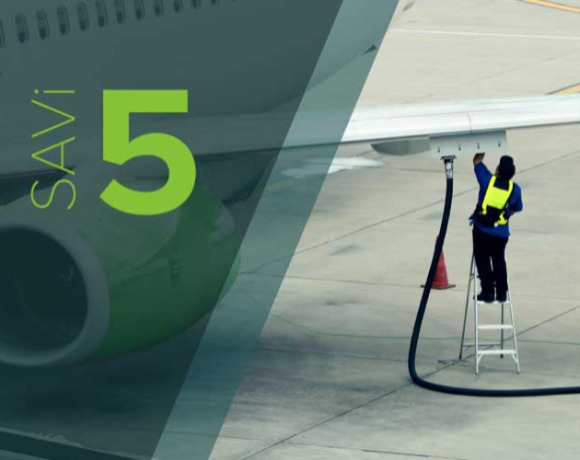Five noteworthy aviation sustainability developments in the past seven days curated by the Ishka SAVi team.
Here are the new developments to keep in mind:
-
ICAP publishes updated overview of global carbon markets, including aviation details – The International Carbon Action Partnership (ICAP), an international forum for governments and public authorities that have or are planning to implement Emissions Trading Systems (ETS), published its 2024 Status Report on 10th April. The 250-page document is an extremely comprehensive resource detailing the status and outlook of ETS worldwide. Deep dives on sectoral developments within each ETS makes this document a must-read to understand the place of aviation in ETS worldwide. Notable highlights include a graph on page 23 listing sectors covered across various systems. At present, domestic aviation is included in the following ETS systems: Switzerland (page 61), UK (page 69), Australia (page 159), certain Chinese regions (Fujian, Guangdong), EU (page 36-37), New Zealand ETS (page 201) and Korea (Page 210).
-
SBTi in hot water over Scope 3 offset plans - The Science Based Targets initiative (SBTi) revealed plans to extend the application of environmental attribute certificates, like emissions reduction credits, to address Scope 3 value chain emissions within its standard for corporate net-zero target setting. SBTi is the most influential science-based environmental target setting corporate standard and is followed by many aviation firms, not least airlines. Scope 3 emissions, typically the most challenging to measure and manage, constitute a significant portion of companies' emissions footprint, often exceeding 90%. This is particularly true for aircraft lessors whose Scope 3 emissions (derived from the lessees’ operations of their aircraft) dwarf Scope 1 & 2 emissions. SBTi plans to issue a draft outlining the rules and guidelines for the expanded use of environmental attribute certificates (i.e. offsets) by July 2024. The decision by SBTi has not been without controversy - SBTI’s own staff have criticised the decision, claiming the leadership acted “without scientific basis,” according to Reuters. NGOs have also heavily criticised the change. Greenpeace referenced their investigation into irregularities in carbon projects in Asia and Carbon Market Watch claimed it is “raising the risk” that corporations can appear to be improving their climate performance on paper while continuing to pollute.
-
SMBC Aviation Capital backs new Japan SAF feedstock study – Lessor SMBC Aviation Capital is among three firms supporting a new report published on 9th April examining Japan’s SAF feedstock potential. The report was prepared by ICF in collaboration with Boeing and Mitsubishi Heavy Industries and seeks to underscore Japan's abundant domestic SAF feedstock resources, capable of producing 11 million kilolitres (8.8 million metric tonnes) of SAF by 2050. However, challenges persist in scaling up production capacity, particularly with what the report considers to be the most promising feedstock (municipal solid waste) necessitating the development of new supply chains and technologies. The support by SMBC Aviation Capital for this research fits into a wider trend of lessor engagement with SAF as recently noted by Ishka.
-
EU’s SES takes new steps as enabler group reaffirms 10% emissions cut promise – The much-delayed Single European Sky II (SES2+) initiative, touted as an enabler of up to 10% emissions reductions through operational efficiencies, continues to progress towards its final legislative approval. On 9th April, the European Parliament’s Transport Committee approved the agreement, leaving now approval by the Council and later the full Parliament as the only steps left. The initiative, which has been a recurrent demand by the aviation industry over the past decade, has been criticised by industry organisations and institutional stakeholders alike. Responding to this criticism this week the executive director of the ‘technological pillar’ that will enable SES expressed “100% confidence that the 10% reduction in emissions will be achieved through the SES”. The comments by Andreas Boschen were part of an in-depth feature into SES by Euronews Green.
-
Pro-train policies preferred even if it makes flying more expensive, say Europeans in new poll – NGO More in Common published a 99 pages polling report aiming to assist policymakers and campaigners working on reducing aviation emissions better understand how the public approaches the various policy options. The policy which attracted the most support was making train journeys the same cost, or cheaper than flights on the same route (75% of respondents). Support only fell slightly (64%) if doing so would involve making flying more expensive. In all five countries, over 55% of respondents thought it was “unfair” that fuel was taxed for cars and trains but not for aircraft. The report specifies that “in focus groups, it made intuitive sense to people that jet fuel should be taxed at the same or similar rate than the petrol they buy at the fuel station”. Nevertheless, while requiring private jets to use SAF even if it is more expensive was seem as a popular and effective measure, requiring all planes to use SAFs is seen as highly effective, but support is lower than for other policies which could indicate consumer concerns about the costs of imposing such a requirement. When asked who should pay for the cost of shifting aviation to green technology, if the cost were to be passed onto passengers, “those who fly in private jets” is the top answer for Europeans (56% of respondents), followed by “those who fly in business class or first class” (36% of respondents).

Ishka is proud to be a Knowledge Partner of Aviation Carbon 2024. Registrations for Aviation Carbon 2024 will open in May.



